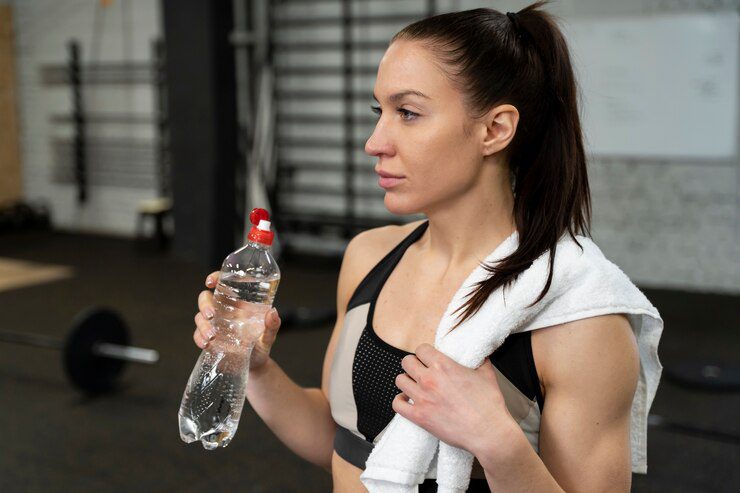Water is not just a drink; it is essential for sportsmen and women and everyone considering its several functions in the body. Great or not, one cannot overemphasize the role of “hydration for athletes,” whether as a sportsman or a fitness enthusiast. Research reveals that if one’s body loses even 2 percent of the water ratio, one will likely experience a decline in one’s ability to generate power, stamina, and focus. So, let me explain why athletes should or rather can make drinking plenty of water, or being hydrated, a huge deal.
Hydration for Athletes: How it Benefits and Why it Is Important
Water is the body’s lifeline. This one plays a role in about all of the body’s activities, including managing body temperatures and the delivery of nutrients to cells. The practitioners also require appropriate water intake to enable them to reach their best in a given activity. Electrolyte balance loss can negatively affect muscle, decrease the person’s endurance, and produce severe outcomes such as heat stroke. Current studies have shown that water works as a great fluid replenisher for the body, hence its visibility as an important factor in any training schedule for enhanced performance by about 20%.
How Water Should Be Taken by Athletes
Enhanced Performance: If your body fluids are optimal, your heart does not require a lot of effort to pump blood around the body, hence enhancing heart health. This would give you more strength and power during the exercises to be undertaken.
Improved Recovery: Drinking water rids the body of toxins, and replenishing the body enhances muscle recovery rates. Water intake during training, before and after exercise, also decreases muscle stiffness and exhaustion, enhancing athletes’ recovery.
Regulation of Body Temperature: It is also important to understand that when exercising, one’s body heats Koes and Heller (2009). Sweat has the function of cooling the body, but you need to replace the amount of fluid lost in order not to get overheated. Drinking water helps to put out the internal fires while helping to beat the heat.
Better Joint Lubrication: Fluid makes up eight percent of muscle tissues and keeps joints in good condition, thus minimizing the chances of an injury. The ubiquity of supplements is especially relevant for athletes in sports who put a significant amount of stress on a joint, which is important for their performance.
How much water should athletes drink? We incorporate data obtained from research evidence to provide an adequate range of fluid intake for athletes as follows:
It cannot be overemphasized at this point that there are no cookie-cutter solutions to these issues. Water intake depends on the size, level of activity, climate, and extent of physical activity, as well as the intensity of exercise. But ideally, athletes need to drink 500 ml (17 ounces) of water 2-3 hours before the event, 250 ml (8 ounces) 30 minutes before a sporting event, and after a warm-up period, 200 ml (7 ounces) every 15 to 20 minutes during the event. Hydration for athletes is also key after a workout; consume 16-24 oz (475-710 ml) per pound of weight loss during the workout.
Hydration Tips for Athletics
Start Early: Do not get to a stage where you feel like; you have to drink. One should take water in small amounts and approximately every 20 minutes on a given day.
Use Electrolytes: Coingested electrolytes are recommended for usage during exercise duration exceeding 60 minutes. These assist in replacing the sodium, potassium, as well as other minerals that could be lost through perspiration.
Monitor Your Urine Color: One of the easiest and simplest ways of determining one’s hydration level is by looking at the color of the urine. The color in the recommended range is pale yellow, while the urine is dark yellow; this would indicate that the body requires water.
Conclusion
In the world of sports and fitness, staying hydrated can be the difference between winning and losing. The benefits of proper hydration for athletes extend far beyond just quenching thirst. It impacts endurance, strength, focus, and recovery. So, the next time you hit the gym or the field, remember that staying hydrated isn’t just about drinking water—it’s about optimizing your body’s performance.







